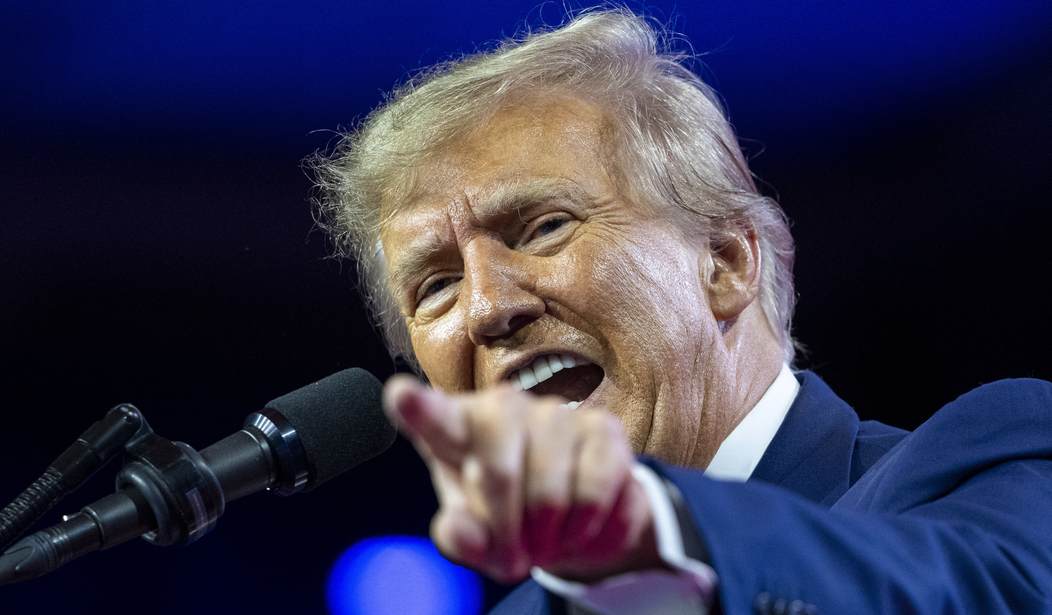Like the East Palestine train derailment last month, it didn’t take long for the left to blame Donald Trump for the collapse of Silicon Valley Bank (SVB), the second-largest bank collapse in U.S. history. And, like the train derailment, the collapse of SVB isn’t Trump’s fault either.
Bill Clinton’s former labor secretary, Robert Reich, chimed in early with the “blame Trump” approach. “By the way, Trump deregulated banks like Silicon Valley Bank,” Reich tweeted on Friday.
Joe Biden entered the fray on Monday. “During the Obama-Biden administration, we put in place tough requirements on banks like Silicon Valley Bank and Signature Bank, including the Dodd-Frank law to make sure the crisis we saw in 2008 would not happen again,” Biden tweeted. “Unfortunately, the last administration rolled back some of these requirements.”
It was a weak accusation, considering that Biden has been in office for two years, with his appointees in charge of regulatory agencies, and up until January, he had control of both the House and Senate. If he really thought the rollback of Dodd-Frank was a bad thing, he could have tried to restore it. Though in reality, that might have been difficult to pull off.
Related: The Biden Economy Is Falling Apart, Everything, Everywhere, All at Once
President Trump did sign a rollback of the Dodd-Frank law, but it was a bipartisan bill. The House voted 258-159 in favor of it, and 67 U.S. Senators, including 17 Democrats, voted for it as well. In other words, it was a rare display of bipartisanship in the increasingly divided Congress.
Still, even though the bill that undid Dodd-Frank was bipartisan, it had nothing to do with what happened to Silicon Valley Bank.
According to EJ Antoni, a research fellow in Regional Economics with The Heritage Foundation’s Center for Data Analysis, the collapse had “nothing to do with Trump or Dodd-Frank” and more to do with an “unusual confluence of events.”
Antoni explained to FOX Business that Silicon Valley Bank “dealt almost exclusively with tech firms which usually rely on continuously rolling over large debts.” This means that the firms are “not paying off their debt but simply taking out new debt to pay off the old.”
“Second, SVB put a disproportionate amount of its cash into long-term bonds. Ordinarily, that’s not a bad strategy, but it’s unwise when interest rates are zero because those rates must rise eventually,” Antoni continued. “When rates rise, bond prices fall. This is because an investor with the choice to buy an existing bond at a low rate or a new bond at a high rate will choose the new bond since it’s a better return on investment. If you want to sell the old bond with its lower interest rate, you must be willing to sell it at a discount; otherwise, no one will buy it.”
Antoni explained that due to SVB’s lack of diversified clientele, there was a sudden high demand for cash withdrawals, which resulted in the forced liquidation of devalued bonds. This triggered a rapid downward spiral in the company’s finances. Because of this, SVB had to sell off its bonds at a loss to generate revenue.
Although such transactions are a common occurrence in the financial sector at a smaller scale, the Federal Reserve’s abnormally low interest rates made conditions ripe for the collapse.
“This is nothing more than a sad attempt to gaslight the public to evade responsibility,” Trump campaign spokesperson Steven Cheung said in a statement. “The fact is that Biden has presided over a catastrophic economy that has devastated everyday Americans and has caused misery across the country due to his anti-America policies.”










